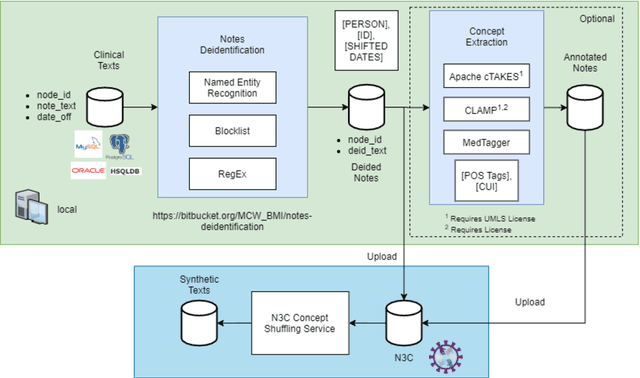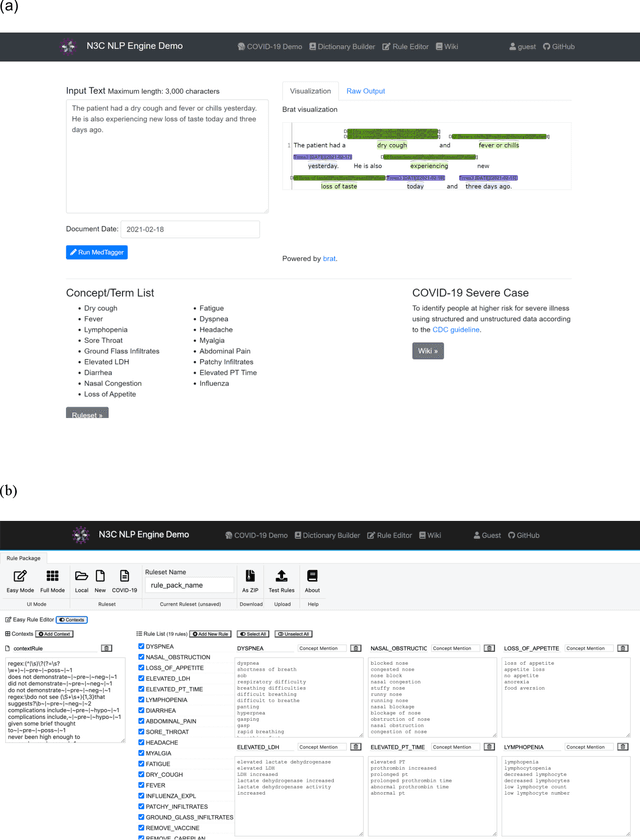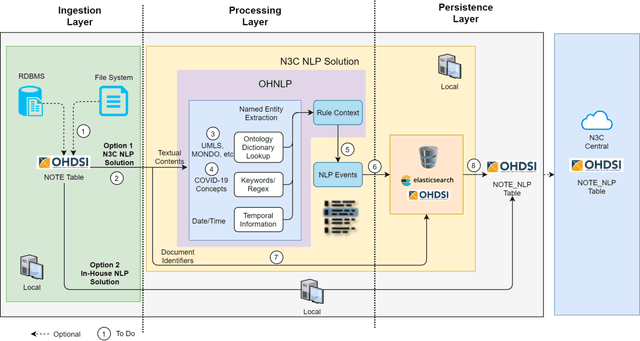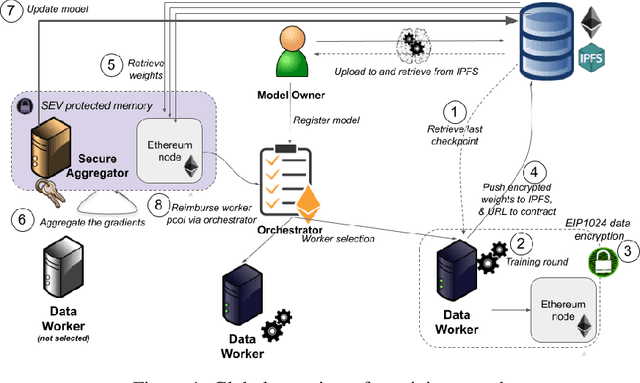Robert Miller
N3C Natural Language Processing
An Open Natural Language Processing Development Framework for EHR-based Clinical Research: A case demonstration using the National COVID Cohort Collaborative (N3C)
Oct 20, 2021



Abstract:While we pay attention to the latest advances in clinical natural language processing (NLP), we can notice some resistance in the clinical and translational research community to adopt NLP models due to limited transparency, Interpretability and usability. Built upon our previous work, in this study, we proposed an open natural language processing development framework and evaluated it through the implementation of NLP algorithms for the National COVID Cohort Collaborative (N3C). Based on the interests in information extraction from COVID-19 related clinical notes, our work includes 1) an open data annotation process using COVID-19 signs and symptoms as the use case, 2) a community-driven ruleset composing platform, and 3) a synthetic text data generation workflow to generate texts for information extraction tasks without involving human subjects. The generated corpora derived out of the texts from multiple intuitions and gold standard annotation are tested on a single institution's rule set has the performances in F1 score of 0.876, 0.706 and 0.694, respectively. The study as a consortium effort of the N3C NLP subgroup demonstrates the feasibility of creating a federated NLP algorithm development and benchmarking platform to enhance multi-institution clinical NLP study.
A blockchain-orchestrated Federated Learning architecture for healthcare consortia
Oct 12, 2019
Abstract:We propose a novel architecture for federated learning within healthcare consortia. At the heart of the solution is a unique integration of privacy preserving technologies, built upon native enterprise blockchain components available in the Ethereum ecosystem. We show how the specific characteristics and challenges of healthcare consortia informed our design choices, notably the conception of a new Secure Aggregation protocol assembled with a protected hardware component and an encryption toolkit native to Ethereum. Our architecture also brings in a privacy preserving audit trail that logs events in the network without revealing identities.
 Add to Chrome
Add to Chrome Add to Firefox
Add to Firefox Add to Edge
Add to Edge